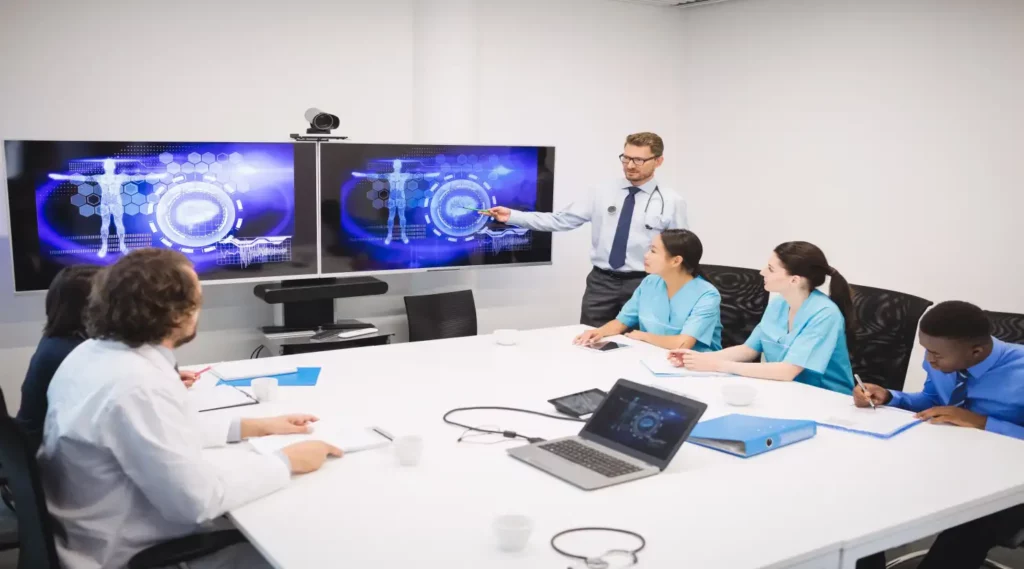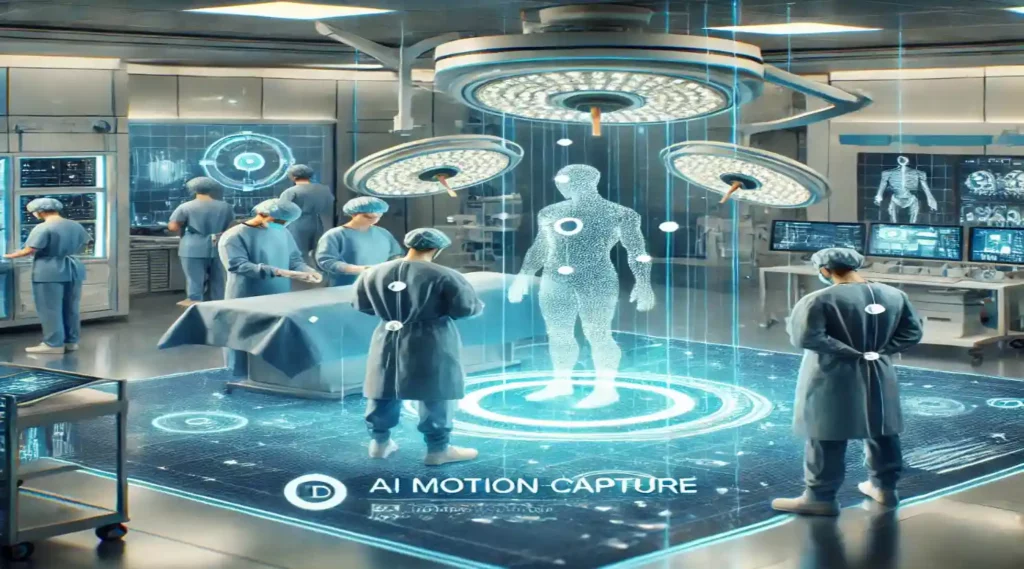How Can AI Motion Capture Be Used in Medical Training and Simulations?
Writer
Emily RobertsDate
04 Dec 2024
Share article

Medical training is entering a new era, driven by cutting-edge technologies that make learning more immersive, hands-on, and effective. One revolutionary tool leading this shift is AI motion capture—a technology that captures human movements in real time and translates them into digital data. Imagine practicing complex surgical techniques, tracking rehabilitation progress with precision, or preparing for high-pressure emergencies—all in a risk-free, controlled environment.
This game-changing innovation isn’t just for specialists; it’s transforming the learning experience for everyone, from aspiring surgeons to seasoned therapists. Even better, solutions like Remocapp are making AI motion capture more accessible, cost-effective, and portable, empowering medical professionals and institutions of all sizes to elevate their training programs. Keep reading to discover how this technology is reshaping the future of healthcare education.
What is AI Motion Capture and How does it Work in Medical Training?
AI motion capture is a technology that tracks human movement and turns it into digital data using artificial intelligence. Unlike traditional systems that require suits or markers, AI mocap uses cameras—like webcams or smartphones—to record movements naturally. Advanced algorithms then analyze this footage in real-time, creating a precise digital model of the motion.
This markerless and real-time approach makes AI mocap faster, easier to set up, and more affordable. It’s widely used in medical training for tasks like simulating surgeries, tracking physical therapy progress, or preparing for emergency scenarios. With its ability to replicate realistic movements and provide instant feedback, AI mocap is transforming how healthcare professionals learn and practice their skills.
Who Benefits from AI Motion Capture in Medical Training?
AI motion capture holds value for a diverse range of professionals and institutions in the healthcare industry:
- Medical Schools: Enhance student engagement with interactive surgical simulations and patient care exercises.
- Hospitals and Clinics: Train staff in complex procedures or emergency response protocols.
- Rehabilitation Centers: Track patient recovery progress and refine therapy plans.
- Individual Practitioners: Hone skills in a controlled, risk-free environment.
Whether improving surgical precision or fostering soft skills like communication and empathy, AI motion capture caters to various medical applications.

How Remocapp Helps in Medical Simulations and Training
Remocapp, an AI-based motion capture software, stands out for its real-time, markerless capabilities. This innovative tool captures human movements using standard webcams, eliminating the need for expensive suits or sensors. Here’s how it helps:
- Surgical Training: Trainees can practice intricate procedures, such as laparoscopic or robotic surgeries, with precise feedback on their movements.
- Physical Therapy: Therapists can track patient motion patterns and adjust rehabilitation plans accordingly.
- Emergency Simulations: Prepare medical teams for trauma care or mass casualty scenarios, ensuring quick decision-making and effective teamwork.
- Communication Training: Facial motion capture allows doctors to improve their bedside manner and empathy when interacting with patients.
Combining affordability and portability, Remocapp makes advanced training tools accessible to institutions of all sizes.
Empowering Physical Therapists and Patients
For surgeons, the ability to practice complex procedures in a realistic yet controlled setting is invaluable. AI motion capture recreates these environments, enabling hands-on learning without patient risk. Imagine a surgical trainee rehearsing a delicate cardiac operation. With motion tracking, every hand movement is analyzed, providing instant feedback on posture, grip, and precision.
Such simulations not only improve technical skills but also build confidence. Trainees can repeatedly refine their techniques, mastering tasks that would otherwise require years of on-the-job experience.
The Role of AI Motion Capture in Physical Therapy Training
In physical therapy, progress tracking often relies on subjective assessments. AI motion capture changes this by delivering precise, data-driven insights into a patient’s movements. A therapist might use the technology to analyze joint angles during a rehabilitation exercise, ensuring proper form and preventing injuries.
Patients also benefit from engaging visual feedback that demonstrates their improvement over time. Portable solutions enable therapists to monitor recovery remotely, offering convenience for both practitioners and patients.
Emergency Scenarios: AI Motion Capture in Medical Training
Medical emergencies demand swift action and flawless coordination. AI motion capture simulates high-pressure scenarios, enabling teams to practice effectively in a safe environment. For example, an emergency room team might rehearse managing a multi-victim trauma incident, with AI analyzing their actions and suggesting improvements.
This preparation translates into better outcomes during real crises, where every second counts.
AI Motion Capture and Accessibility in Medical Training
Historically, advanced medical training tools required significant investment in equipment and infrastructure. AI motion capture tools like Remocapp democratize access to these technologies. Smaller institutions, rural clinics, and budget-conscious programs can now implement cutting-edge training without compromising quality.
By utilizing standard webcams and everyday devices, even resource-limited organizations can adopt AI motion capture to enhance their programs.
A Real-World Example of AI Motion Capture in Medical Training
Consider a surgical intern practicing laparoscopic techniques in a hospital simulation lab. With AI motion capture, they receive real-time feedback on their movements, identifying inefficiencies and perfecting their technique over multiple sessions. By the time they perform the procedure on an actual patient, they’ve gained confidence and competence, reducing risks and improving outcomes.
The Future of AI Motion Capture in Medical Training and Beyond
AI motion capture is revolutionizing medical simulations, offering tools that enhance precision, accessibility, and engagement. Whether used for surgical training, physical therapy, or emergency preparation, this technology bridges the gap between traditional methods and the demands of modern healthcare.
With solutions like Remocapp, institutions can elevate their training programs, empowering medical professionals to deliver better care. As the field evolves, AI motion capture will remain at the forefront, shaping the future of medical education.

FAQ
AI motion capture uses artificial intelligence to track human movements and translate them into digital data. It helps simulate surgeries, train for emergencies, and monitor rehabilitation progress in real-time.
Yes, AI motion capture tracks patient movements to deliver precise, data-driven insights for therapy plans. It ensures proper form, prevents injuries, and allows therapists to monitor progress remotely.
Yes, solutions like Remocapp make AI motion capture accessible by using standard webcams and requiring no expensive equipment, allowing even smaller clinics and schools to adopt it.
